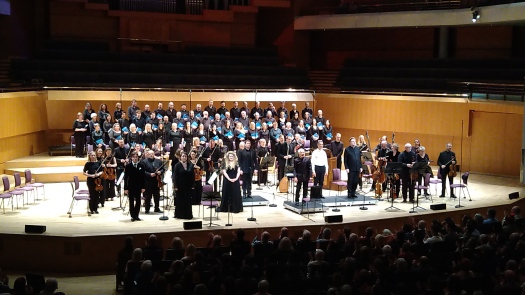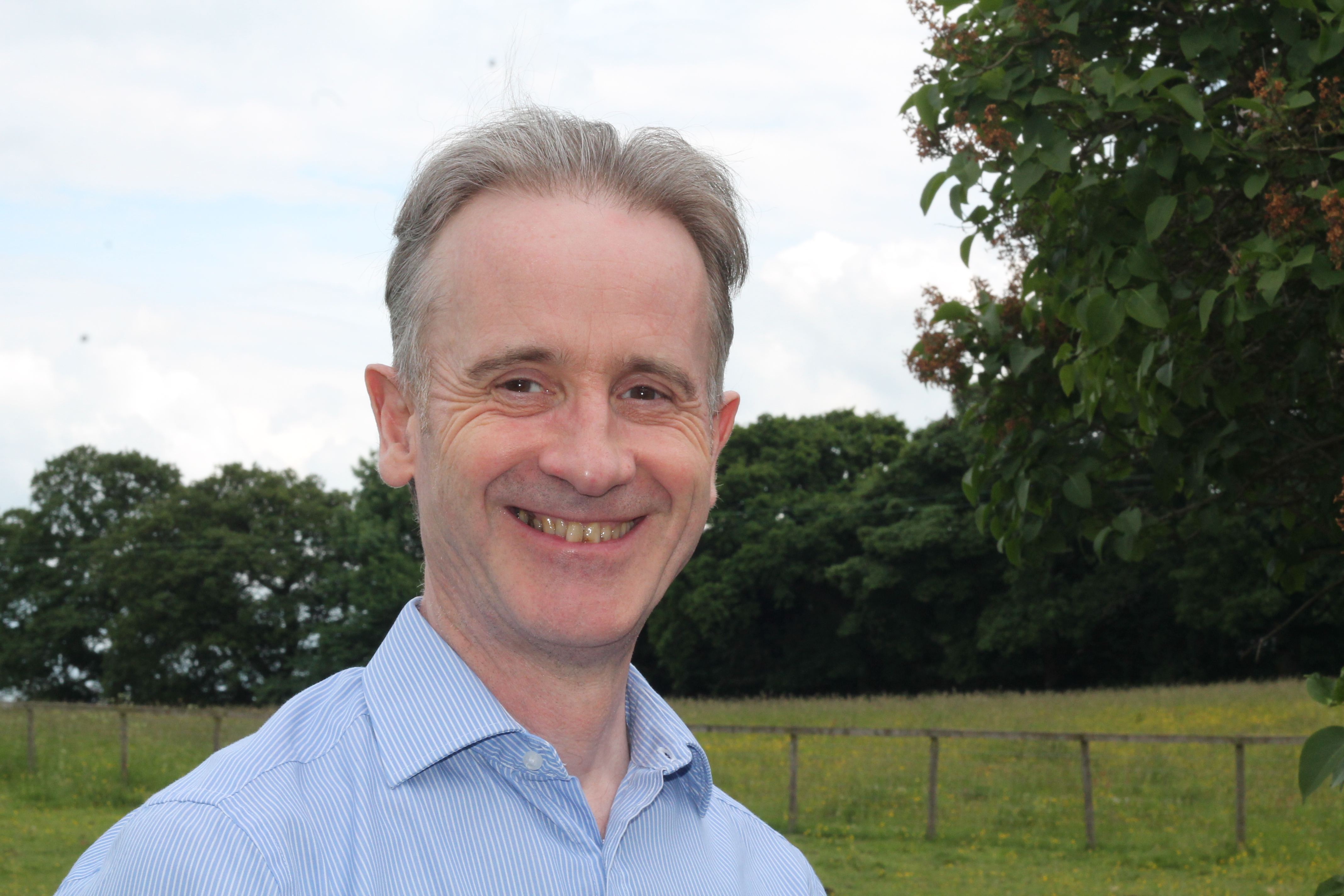Friday 29 March 2024
Bridgewater Hall Manchester
A moving and dramatic interpretation 300 years after the first performance
*****

Bach’s St John Passion was first performed 300 years ago, on 7 April 1724 at St Nicholas’ Church in Leipzig. Bach had moved to Leipzig the year before to take up a post at the Thomaskirche (St. Thomas Church) and to look after music at three other churches. The liturgical Passion of Christ recounts Jesus’ suffering (from the Latin ‘passus’) his trail at the hands of Pontius Pilate, his crucifixion by the Romans and his death. It was written for the Good Friday service in Leipzig, with a long sermon preached between Parts I and II. It is often performed – as here – on Good Friday and doesn’t describe the resurrection of Christ that is celebrated three days later on Easter Sunday. The St John Passion was the first of at least three Passions that Bach wrote in Leipzig, of which only two survive, the other being the St Matthew Passion, first performed in 1727. The St Matthew Passion is longer than the St John Passion, less dramatic and more contemplative. Both are masterpieces of Western art.
In this performance, to use composer Michael Tippett’s memorable description of first hearing the countertenor Alfred Deller sing in the 1940s, ‘the centuries rolled back.’ We were transported three centuries back – the work felt vital, contemporary, dramatic and moving. This was partly due to Bach’s masterful structure, interspersing the dramatic narrative from St John’s Gospel with more contemplative arias with words from more recent poetry, and hymn-like chorales in which the significance of events just described is amplified and deepened.
The orchestra, ably directed by veteran Early Music specialist Nicholas Kraemer, who began his professional career as a harpsichordist, was superbly fleet of foot throughout. In the recitative sections where much smaller forces accompanied the evangelist Benjamin Hulett, Kraemer sometimes sat back and allowed the performers to create their own chamber group, listening intently to each other like members of a modern string quartet. In the opening chorus, ‘Herr, unser Herrscher’ (Lord, our Redeemer), the orchestra was fast and lilting. The singers of Manchester Chamber Choir, over 50 in all, joined in robustly, with excellent dynamics, beautifully shaped, expertly prepared by baritone Marcus Farnsworth (a member of Manchester Cathedral Choir very early in his career) and Darius Battiwalla who played organ in the concert. Benjamin Hulett then took up the story, with a lovely, lyrical, agile and flexible tenor, with expressive word painting. The first aria came from contralto Jess Dandy, who shone recently in a performance of Julia Perry’s Stabat Mater with the BBC Phil in early March. Dandy is an exceptional talent, with a rich creamy, dark-toned voice that conveys great emotion.
The next aria, sung by soprano Hilary Cronin, provided a suitable contrast – Cronin has a lovely voice, light, agile, making the difficult rising passages of ‘Ich folge dir gleichfalls mit’ sound effortless. We first heard from Jesus himself when he was questioned by the High Priest about his disciples and doctrines. Jesus replied that he spoke openly to the world, never hiding anything. The role was played by baritone Roderick Williams who wore a plain white shirt to differentiate him from the other performers who were in black. But the whiteness of his shirt didn’t suggest that he was a sacrificial lamb, at the mercy of the of the Roman authorities. Rather, he was quietly dignified, addressing the audience directly and intimately, subtly arguing his case.
Part 2 began with the Chorale ‘Christus. der uns selig macht’ (Christ who brings us joy), powerfully delivered by Manchester Chamber Choir, whose attention to dynamics was again excellent as it was throughout the concert. This was followed by the most visceral section of the concert, the trial of Jesus by Pilate which was brought thrillingly to life here. The Choir captured their passionate devotion to Jesus in the Chorale ‘Ach, grosser König’ (‘O Mighty King’) and elsewhere were a rowdy crowd calling for the release of Barabbas, and later for the crucifixion of Jesus, almost operatic in their intensity. Perhaps the most effective part of this section was when Pilate asked Jesus ‘Von wannen bist du?’ (Whence art thou?) Williams’ dignified silence spoke volumes.
But the emotional high point of the whole concert was the moment of Jesus’ death, expressed by Roderick Williams with delicate simplicity, ‘Es ist vollbracht’ Jess Dandy was joined by the superb viola da gamba player Lucine Musaelian in the aria ‘Es ist vollbracht'(It is accomplished), picking up Jesus’ final words. Dandy’s performance was profoundly poignant, deeply moving, creating in TS Eliot’s phrase ‘the still point of the turning world’, a moment of contemplation outside time. Some tears were shed in the audience.
The rest of the Passion intermingled the continuing narrative of events immediately after Jesus’ death with more thoughtful passages about the effect of his death. There was gorgeous interplay between bass soloist Benjamin Bevan (who also played Pilate) and the Choir in the Aria ‘Mein teurer Heiland’ (My dearest Saviour). Benjamin Hulett was electrifying in his description of the curtain of the temple being torn in two, with its onomatopoeic falling cello motif. Hilary Cronin was accompanied by lovely woodwind in her aria ‘Zerfliesse, mein Herze’ (Dissolve then, heart). Hulett was beautifully tender in his description of the wrapping of Jesus’ body in linen clothes and spices before he was laid in the sepulchre. But the ending was, appropriately bearing in mind their contribution throughout, was left to the Choir, at first calmly contemplating Jesus’ death and then more robustly addressing the hope of heaven that Jesus’ death brings. An apt end to a very memorable concert which combined superb musicianship with a sense of reverence and deep humanity.
Performers
Benjamin Hulett (Evangelist)
Roderick Williams (Christus)
Hilary Cronin (soprano)
Jess Dandy (contralto)
Laurence Kilsby (tenor)
Benjamin Bevan (bass)
Manchester Chamber Choir
BBC Philharmonic
Nicholas Kraemer (conductor)
The concert was broadcast live on BBC Radio 3 and is available to listen online or via BBC Sounds for 30 days after the date of broadcast


